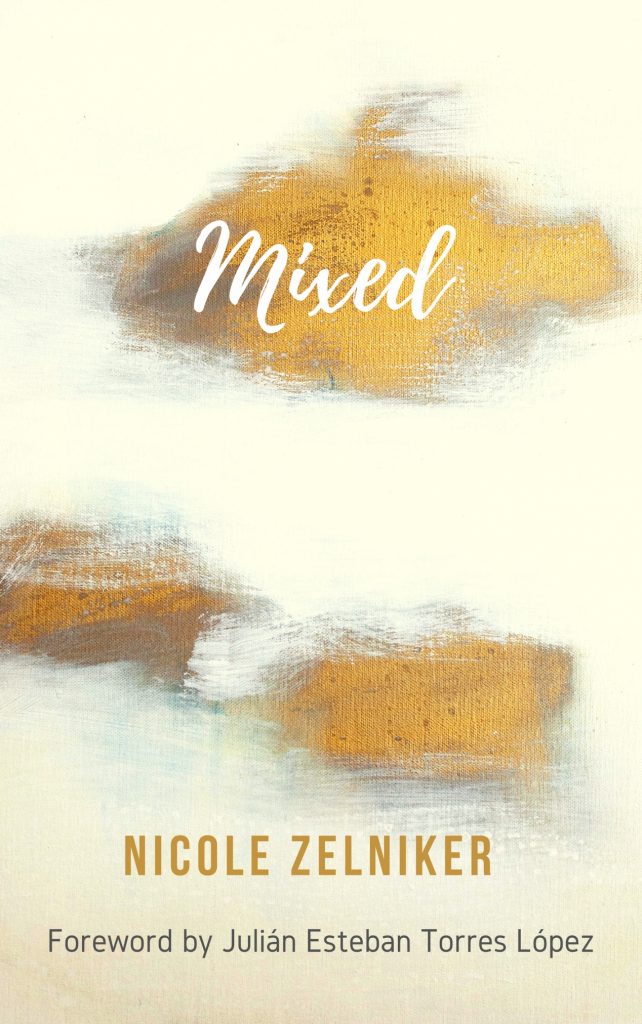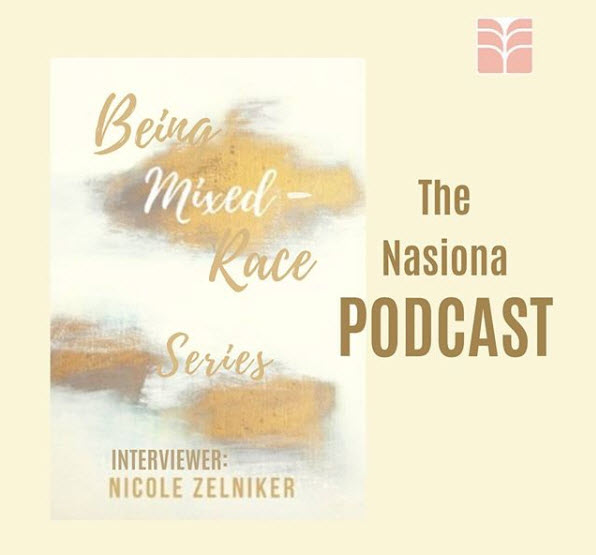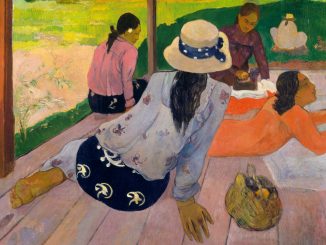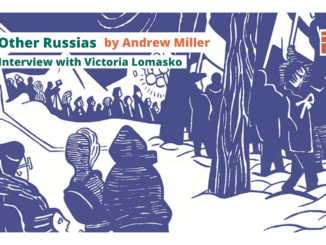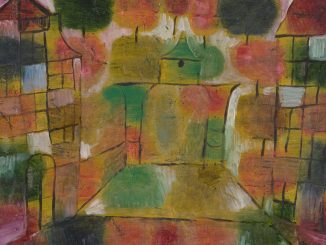
IN THE SUMMER OF 2018, I launched The Nasiona, whose mission is to cultivate the seeds of nonfiction. We do this through our magazine, podcast, publishing house, and editing services. Though many in the industry deem us a literary project, I founded The Nasiona as an unconventional journalism organization. The former is a means to achieving the latter. I believe objective reporting is a myth, so I embrace the subjectivity of human experience to get a better vantage point of our condition as persons. As a result, though the stories we publish focus on creative works based on facts, truth-seeking, human concerns, real events, and real people, we like to pay attention to more than “just the facts, ma’am.”
At The Nasiona, we dig deeper into the who and the why than traditional news sources. We look for why people are the way they are to better understand who they were, are, and want to become. We believe it is in the reformation of these conventional constellations that we can better understand when and how people behave in a certain way to enact the what of their lives depending on where they were, are, and will be.
What drew me to publish Nicole Zelniker’s manuscript was that it exemplified what both she and I believe journalism should do: tell stories through us. Mixed gives a voice to those who have not traditionally been given a voice in the United States, and, as a result, we are better for it.
This kind of holistic reporting, untethered to the myth of objectivity, adds value to the discourse and the industry in a more authentic way because we deal with honesty and the vulnerabilities of individuals and embrace the fact that our memories and shared histories, our truths and facts, can be limited, distorted, or false, especially if we never engage and speak with the individuals behind the statistics.
Our actions are rooted in the personal narratives we tell ourselves. We live in our heads and our hearts. Thus, it makes sense to excavate those stories to truly catch a glimpse at what makes us tick. It is by getting inside the personal narratives that we can more effectively comprehend why people love and hate, where biases and prejudices are born and nurtured, and what holds us back from developing into who we want to become.
It is these stories that interest me for The Nasiona. It is these stories that Zelniker shares in Mixed. She introduces us to the people behind the statistics and about what it means to be mixed in the US today.
I believe that searching for, discovering, and promoting such stories helps build bridges between strangers. We tend to be afraid of the unknown and what we don’t understand. Fear creates tension, division, and conflict, which can lead to violence. With these stories, I hope to put the overlooked and undervalued up front of people so we can lock eyes with it. In the end, I hope that we can remove a barrier, no matter how small, which may lend to a more harmonious relationship between people, even if they disagree with each other.
I felt the need to create The Nasiona—and to publish Mixed as our first book under our publishing house—because of my own experiences as a mixed Other and experiences I had working in the space of conflict resolution. I spent many years engaged in trying to understand armed conflict, what pushes people toward violence, what drives fundamentalists, and how we can create lasting, enduring peace in a plural, diverse world.
After the US military denied me acceptance as a teenager because I was not yet a documented migrant, I worked my way into university. I received a BA in philosophy, a BA in communication, and an MA in justice studies from the University of New Hampshire, and I was a PhD candidate at University of British Columbia Okanagan’s interdisciplinary graduate studies program, where I focused on political science and Latin American studies.
I’ve gathered nearly two decades’ experience as a journalist, researcher, writer, editor, and educator. I’ve run several cultural and arts organizations, edited journals and books, was a social justice and public history researcher, taught university courses, and managed a history museum. I’ve written books and columns on history, culture, and how Othering can guide a people toward armed conflict. I’ve won grants and fellowships to conduct research in these areas and have given talks at conferences, like the International Congress of the Latin American Studies Association to discuss my work.
My experience leading up to founding The Nasiona was that it was very difficult to change people’s minds through mere argumentation, which was my preparation as an academic. I was trained to learn as much as I could about a topic and to then propose a well-reasoned argument that may persuade an individual to accept my propositions. Though this obviously works in many cases, it often does not when it comes to intense issues where beliefs and prejudices have grown deep roots. This is especially true for faith-based beliefs, be it political, social, economic, or religious.
Add to the aforementioned a desire for vengeance and the fear of death or loss of liberties, and this tends to be the general outline of most extreme conflicts, like the one I spent years studying and reporting on: the Colombian armed conflict in South America. And with such conflicts follow a wave of propaganda to justify involvement in said conflicts. This only helps the roots of prejudice and hatred grow deeper by creating even larger divides through fomenting fear of the Other—a person or group of people who we view or treat as intrinsically different from and alien to ourselves.
But those who are intrinsically different have a face. A voice. A history. And depending on which camp you reside, you too are the Other. We are all Others. With The Nasiona, I want to bridge that divide by humanizing the Other so the Other is no longer just a number, someone who threatens our way of life, but also a human being, flawed and with dreams deserving of respect like the rest of us, like you believe you deserve. I want to give the reader a glimpse into different worlds from our own and, simultaneously, a glimpse into our shared worlds. Mixed does that.
During my work leading up to founding The Nasiona, I realized that it wasn’t simply through argument that most people would open the door to new ideas. For example, if I start a persuasive campaign essentially with “You are wrong and I am right because of a, b, and c,” I’ve already lost most people, even if I presented scientific facts, even if I unearthed logical fallacies. They’d become defensive, and their honor, pride, whatever, would be at stake.
However, if we start simply by sharing personal stories, being vulnerable about who we are and why we are, people tend to abandon their defensive stances even slightly. They are less apt to take to the offensive, and listen. Not only may we learn to see each other as more fully human in this way, but we may begin to no longer see strangers simply as Others, as potential enemies. This shift of engagement opens a space for a potential recognition of the Other’s humanity. It creates a potential environment where former enemies may be able speak to or see each other as imperfect humans who act in different ways because of circumstance, genetics, or beliefs.
Sadly people, including myself, don’t care as much as we’d like about facts, or we interpret them differently to fit our own narratives about the world. Most of the time we do this subconsciously. So, how do we engage in meaningful dialogue with a perceived enemy or someone we fear or someone who fears or hates us? How do we connect with someone whose very existence challenges you or your worldview?
How we introduce ourselves to others will shape how we engage with the Other, with the stranger, with the unknown, thereby creating a different relationship. This is what I’m trying to do with The Nasiona and by publishing Zelniker’s Mixed. I’m trying to highlight complex stories, but beyond mere statistics.
Not every transformative experience will turn into empathy, and maybe they don’t all deserve to, but fully grasping the why and the how is not only a more complete story, but a story that can transform, create humility, construct bridges, cultivate empathy, and produce a situation that may disrupt our personal worlds. This way, we aren’t just walking around on autopilot and acting as if everything is merely a black and white issue. I want us to be counted. We’ve been discounted for far too long.
We live in the gray, in the nuances, in the mixed. I felt the need to shine a spotlight on that arena with more vigor. The individuals with whom Zelniker speaks in each chapter are the kinds of complex, real, and honest characters I grew up wanting to see on the screen and in literature; yet, they are real people. It is these people and their stories I want to introduce.
Though mixed individuals have different stories and come from diverse backgrounds, we are all connected by the experience of living in this liminal space. Every story in Mixed felt like it was a part of me, as if it were in my own head, from my own heart. I felt like if people only read this book, they would understand my experience better, an experience I wasn’t introduced to at school by teachers, on the field by coaches, or even dissected at home with my family. An experience I had lived, but few understood or even knew existed. Their stories created a bond with me.
To write Mixed, Zelniker spoke to dozens of mixed-race families and individuals, as well as experts in the field—such as psychologist Cirleen DeBlaere and historians José Moya and Karl Jacoby—about their own experiences, with the hope to fill a gap in the very important conversation about race. The definition of families is widening, whether it’s because of mixed-race relationships, interracial adoption, etc. Today, it is important to hear from a growing population about race, their shifting identities, and what family means to them.
Mixed takes us on a journey and helps us glimpse into overlooked worlds and engage the spectrum of human experience. In doing so, Zelniker and Mixed are evidence of one of The Nasiona’s strongest pillars: the subjective can offer its own reality and reveal truths some facts cannot discover.

Julián Esteban Torres López is a Colombian-born journalist, publisher, podcaster, author, researcher, educator, and editor. Before founding the nonfiction storytelling organization The Nasiona, he ran several cultural and arts organizations, edited journals and books, was a social justice and public history researcher, wrote a column for Colombia Reports, taught university courses, and managed a history museum. He’s a Pushcart Prize and Best Small Fictions nominee and has written two books on social justice. Torres López holds a bachelor’s in philosophy and in communication and a master’s in justice studies from University of New Hampshire and was a Ph.D. candidate at University of British Columbia Okanagan, where he focused on political science and Latin American studies.
Twitter: je_torres_lopez
The definition of families is widening, whether it’s because of mixed-race relationships, interracial adoption, or numerous other factors. Today, it is important to hear from a growing population about race, their shifting identities, and what family means to them. At the heart of the issue are the mixed-race families. Many mixed-race children have had difficulties fitting in, whether with one race or the other. In mixed-race relationships, one partner may face racism, while the other may not, or else they will experience racism in different ways. Children who have been adopted into families that identify as a race that is not theirs often find that they struggle to fit in with their families as well as with people who identify as their own race. Not only are these families navigating US American culture at large, but they also must navigate their own family structures and what it means to be mixed.
About the Author
NICOLE ZELNIKER is a graduate of the Columbia Journalism School and an editorial researcher with The Conversation US. Her work has appeared on The Pulitzer Prizes website and in USAToday and Yes! Weekly, among other places. A creative writer as well as a journalist, Nicole has had several pieces of poetry published including “Cracks in the Sidewalk” (Quail Bell Magazine) and “Surge” (The Greenleaf Review), as well as three short stories, “Last Dance” (The Hungry Chimera), “Dress Rehearsal” (littledeathlit), and “Lucky” (Fixional). Mixed is Zelniker’s first book.
Praise for Mixed
“While race has no biological basis, in the US it is culturally real. Combining personal stories and research, Nicole Zelniker sensitively explores that reality as it relates to identity struggles in a variety of multi-race family structures. Mixed is a valuable resource for biological offspring of biracial couples; for adoptees from racial/ethnic traditions different from their adoptive parents; and for biracial couples, both gay and straight, considering parenthood. Teachers and relatives whose lives these families touch are sure to gain valuable insight as well.”
—Nancy Werking Poling, author of Before It Was Legal: A Black-White Marriage (1945-1987)
“At a time when US society is being ripped asunder by division, we are more inclined than ever to retreat to our tribes, where we believe we are more likely to find safety and understanding. But what happens when you belong to more than one tribe, when your identity doesn’t neatly slide into a particular slot? In Mixed, Nicole Zelniker deftly explores the fascinating conflicts and confusion that often course through the daily lives of people sitting on the bubble between two communities, two different worlds. These are existences that our society desperately needs to understand, to welcome, to celebrate—for this is the American future.”
—Nick Chiles, Pulitzer Prize-winning journalist and New York Times bestselling co-author of The Rejected Stone: Al Sharpton and the Path to American Leadership
“Mixed will be a tremendous resource for those trying to understand why race still matters in the 21st century US. The interviews offer depth and richness in expressing the lived experience of racially mixed families and their children in the age of Trump. Zelniker’s work exposes the myth of colorblindness that many white residents of the US still cling to, but must relinquish when they love someone of color. To love someone is to understand at least something about how they live, and Mixed presents in collage a portrait of mixed-race families and the confusion, frustration, love, and deep communication that exists in real relationships across the color line.”
—Lisa McLeod, Professor of Philosophy and co-lead of the Understanding Racism Workshop at Guilford College
“There is always scope to learn more about what it means to be mixed. This book makes an important contribution to this burgeoning literature, with its insight and portrayals of the many different mixed experiences that have yet to come to light.”
—Miri Song, Professor of Sociology and author of Multiracial Parents: Mixed Families, Generational Change, and the Future of Race
“Through the stories of a deeply diverse array of people, we learn more than we could imagine about what it means to be multiracial. This beautifully-crafted book unites these stories so that we peel them back, layer after layer to find delight, shame, joy, confusion, acceptance, prejudice, pain, optimism, and so many more life experiences. Mixed is a necessary work that adds nuance to the national discourse about race in the United States.”
—Amina Chaudhri, author of Multiracial Identity in Children’s Literature: Reading Diversity in the Classroom
“This book, rich with direct and honest voices speaking across and beyond racial lines, could not be more timely. Drawing on both the historical record and contemporary data, Zelniker straightforwardly frames what it has meant and means to be mixed race in America, while creating a refreshing and necessary space for people and stories that have too often gone unheard in our conversations about culture and individual identity. With a journalist’s sensitivity, she deftly stands back to let her interview subjects speak for themselves. The result is a collection of encounters that is as authentic as it is informative. As a mixed-race American, I deeply appreciated the accuracy and clarity of this book–but most of all the way it listens to the candid and varied and complex voices that lie at its heart. Highly recommended.”
—Mylène Dressler, author of The Last to See Me and Associate Professor of English
